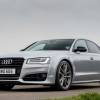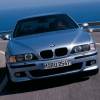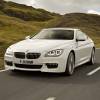
RAC sale – up to 33% off*
• Roadside cover from £5.29 a month†
• We get to most breakdowns in 60 mins or less
• Our patrols fix 4/5 breakdowns on the spot

BY ANDY ENRIGHT
Introduction
Lexus were among the first manufacturers to pick up on a change in buyer behaviour that had utterly escaped many rivals. As the first generation that had grown up living exclusively with hatchbacks matured, they looked for an executive level car with five doors and slick styling. They weren't too hung up on practicality, instead preferring something that looked the part and which offered sparkling road manners. The Lexus SportCross followed hot on the heel of Alfa's Sportwagon in converting these buyers and the sports estate market soon boasted a younger average age than equivalent saloons. If a used executive saloon is still a bit 'key account manager' for your liking, the SportCross makes a very tempting alternative.
Models
Models Covered:
(5 dr estate 2.0, 3.0-litre petrol])
History
The Lexus IS SportCross had a rather unlikely start in life. The saloon version was launched as the Toyota Altezza in Japan and introduced to this country in 2.0-litre Lexus IS200 form in June 1999. The model was a steady seller but yearned for more power, this shortcoming being solved in Summer 2001 when the 211bhp IS300 model was launched in saloon guise. That's when the SportScross estate bodystyle featured here first made its appearance but since you could only have it with the expensive IS300 powerplant, take-up was rather muted to say the least. SportCross estates only began to shift in anything like sensible numbers when a more affordable IS200 version was added rather belatedly in August 2002.
What You Get
Of course, we've seen this sort of estate before in the form of the Alfa Sportwagon and the BMW 3-Series Touring. What's interesting is that although many people accuse Lexus of slavishly aping the appeal of the 3 Series with the IS range, the latest 3-Series Touring seems to be moving away from the 'lifestyle' estate sector and into a more practical role. It seems there could be a sleek, premium-quality sized hole in the market opening up, one which the SportCross at first appears amply qualified to fill.
We've known for some time that Lexus have cracked the art of making automatic gearboxes that can slur shifts more smoothly than David Blaine can palm a queen of clubs into his drawers, but the IS300 SportCross illustrates their expertise superbly. The five-speed automatic transmission is a beauty, and it comes complete with E-shift steering wheel controls when, not if, you feel like turning the wick up a few notches. The IS200 is more commonly offered with a manual transmission.
What You Pay
Please fill in the form here for an exact up-to-date information.
What to Look For
As with all other Lexus models, there is, amazingly, almost nothing to report. Toyota were determined to make these cars as faultless and long lasting as possible and it seems they've succeeded. The main worry with a Lexus will be accident damage or mileage clocking. The panel gaps on the SportCross astound even now in terms of consistency and flushness of fit, so a second-rate repair will be obvious.
If you can, check the car's service records and cross-reference mileage with the dealers who carried out the scheduled maintenance. That way, you'll have peace of mind that the immaculate, low-mileage car you're looking at really is just that.
Replacement Parts
(approx. based on IS200 SportCross) If you're after a new exhaust system, you may need to sit down before reading on: £700. Now that's out of the way, the rest of the parts prices aren't too bad. Front brake pads are around £75 a set, with rears a reasonable £35. A radiator will cost around £200 for a manual car, but a weightier £300 for an automatic. An alternator is around £370, and a new starter motor £170.
On the Road
Whilst the engine is smooth, torquey and agreeable, powerful is one attribute that couldn't really be levelled at the IS200 SportCross' 2.0-litre unit. Therefore you can't expect searing performance - though rest to sixty in 9.5s on the way to 134mph is hardly glacial. This puts the baby Lexus mid-way between four and six-cylinder rivals in terms of performance - much as you would expect. You shouldn't suffer too much at the pumps however. Around 30mpg ought to be possible in average conditions.
The 3.0-litre engine is a different proposition. Performance is lively, the IS300 SportCross hitting 60mph in 7.2 seconds on the way to a top speed the custodial side of 150mph. You're aware of the IS300 SportCross' sporting pretensions the moment you spot the big alloy wheels, the drilled aluminium pedal set and the car's aggressive stance. You would never mistake this for an antique dealer special.
Overall
If you're not concerned with huge amounts of luggage space but like the compact, beautifully detailed styling, the SportCross may well appeal. Balanced rear wheel drive handling, a pair of very sweet engines and that legendary Lexus build quality and reliability make it a very seductive choice. Do bear in mind that you'll get what you pay for.

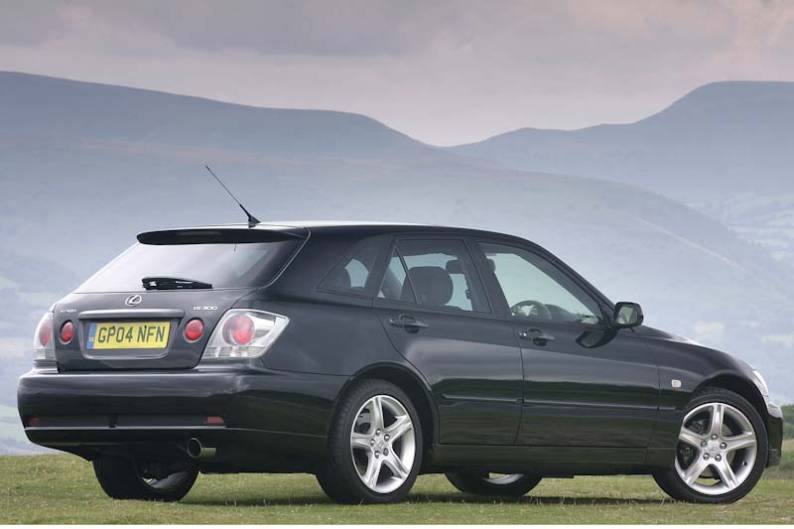

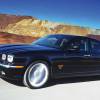
![Mercedes-Benz E-Class [W213] (2020 - 2023) used car review](https://d1ix0byejyn2u7.cloudfront.net/drive/images/made/drive/images/remote/https_d2yv47kjv2gmpz.cloudfront.net/filestore/3/3/9/1_1f771a7c40737bf/a1d4c8c1a9890ad907a898e1de1fe89f/1933_0e825733686ee31_100_100_70_c1_c_c.jpg)
